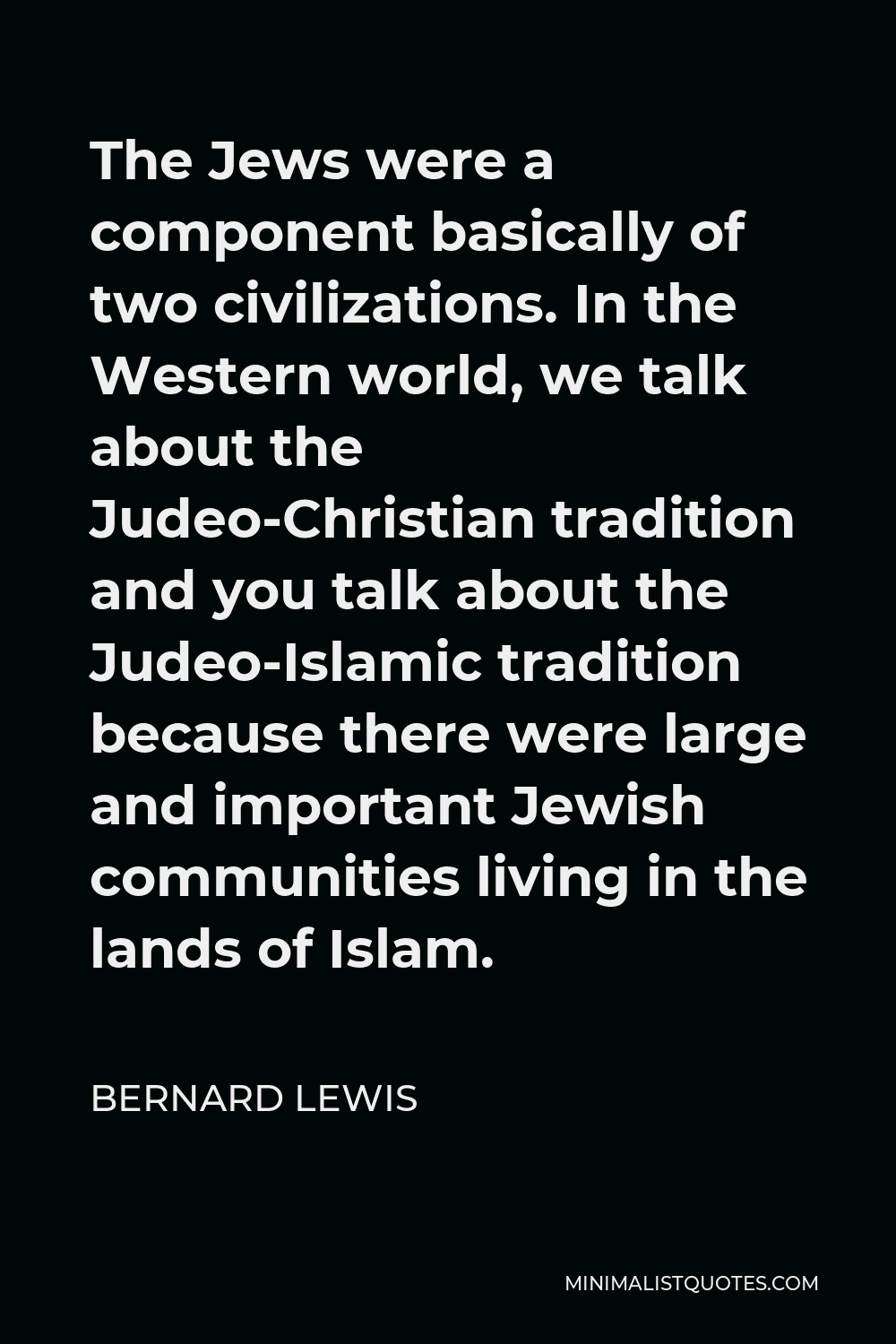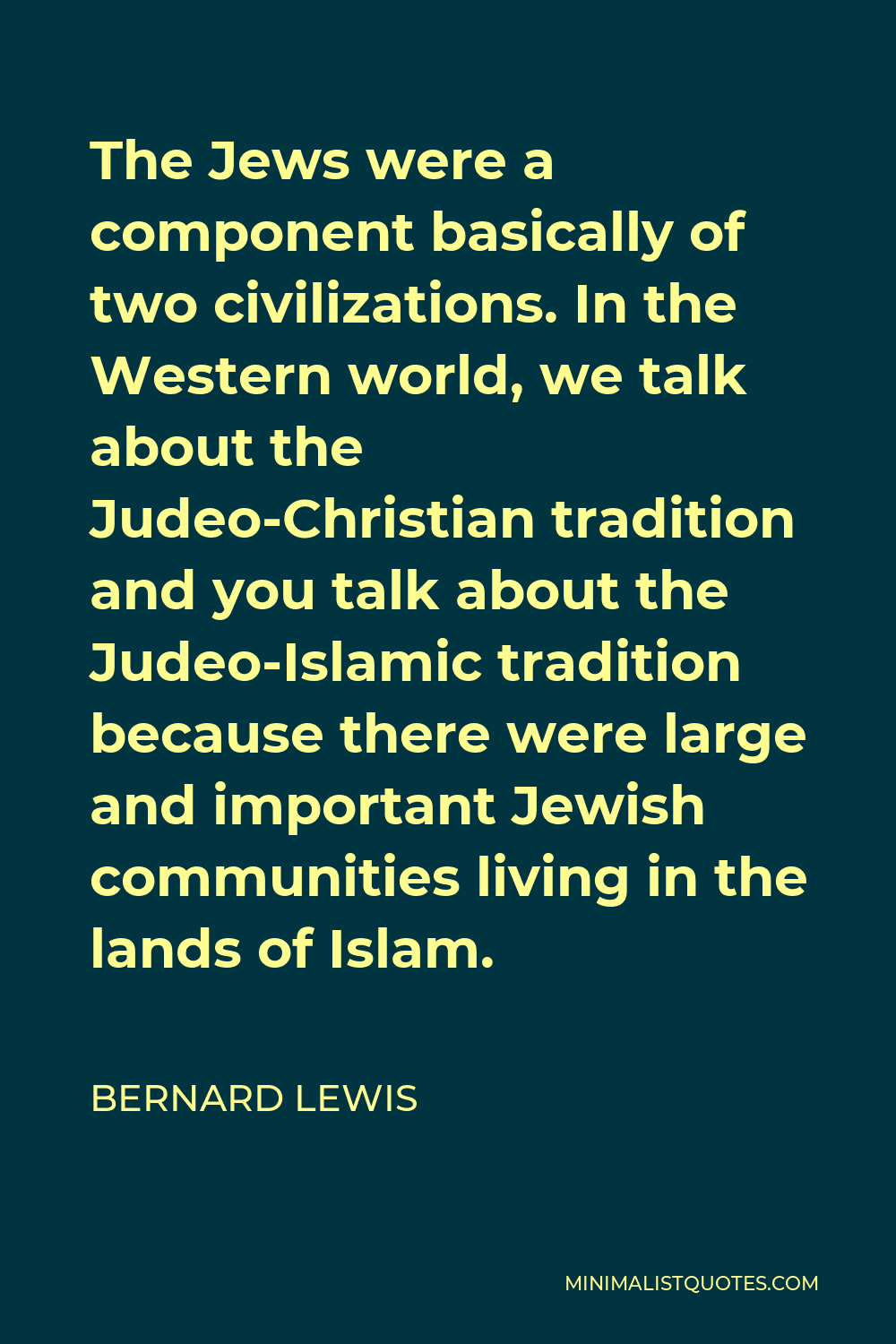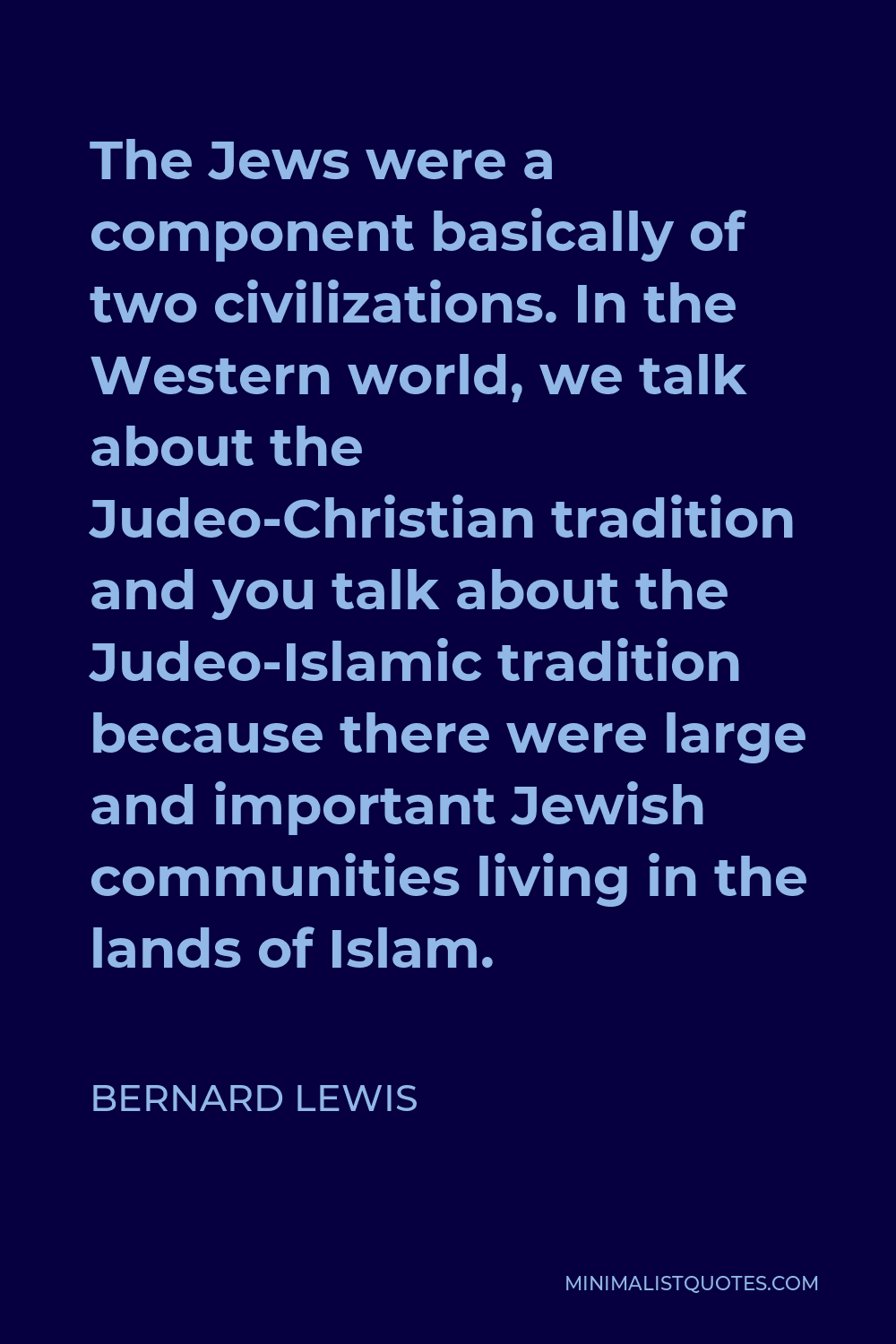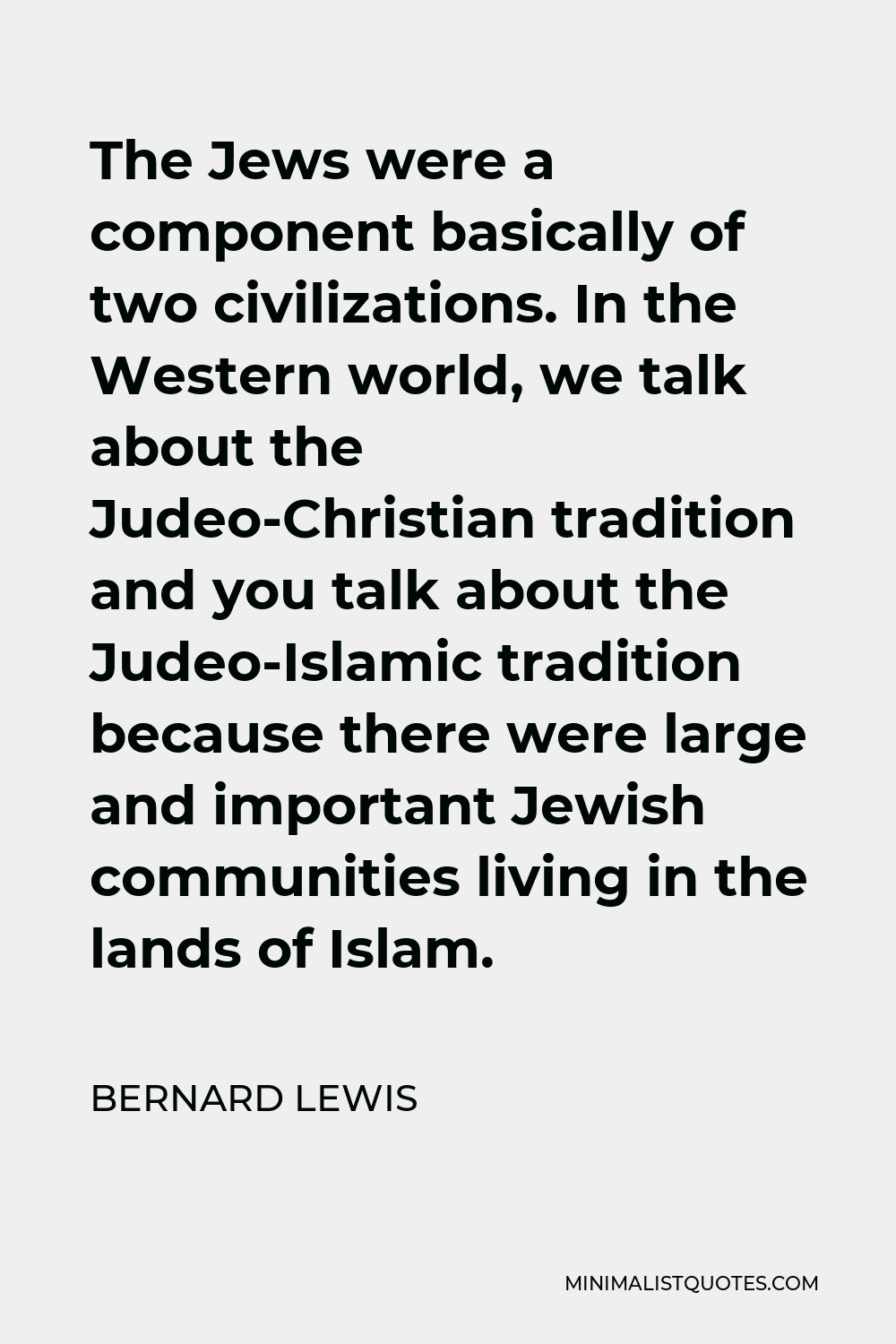Moses led his people through the wilderness and he wasn’t permitted to enter the Promised Land. Jesus was crucified.
BERNARD LEWISThe Jews were a component basically of two civilizations. In the Western world, we talk about the Judeo-Christian tradition and you talk about the Judeo-Islamic tradition because there were large and important Jewish communities living in the lands of Islam.
More Bernard Lewis Quotes
-





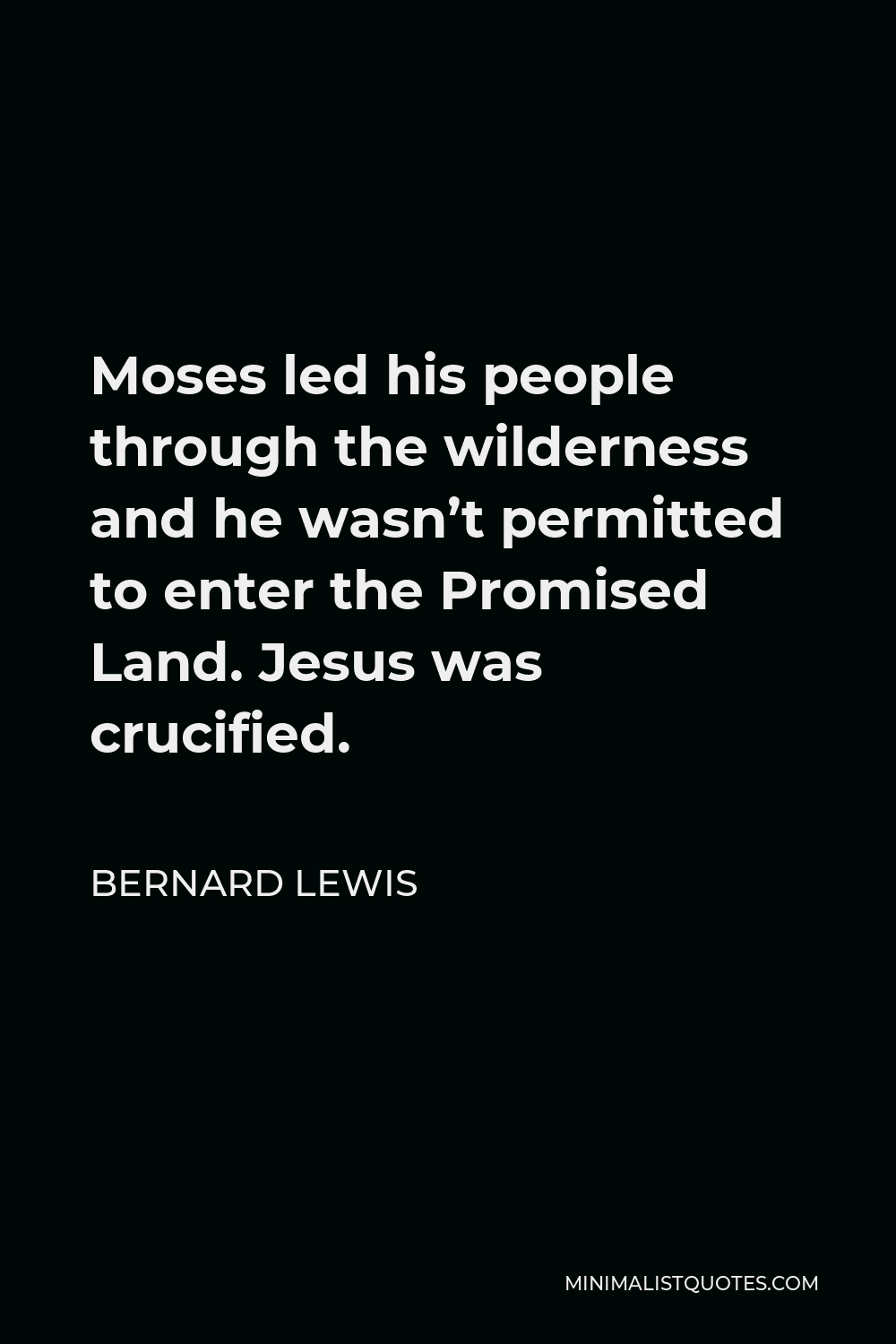
-





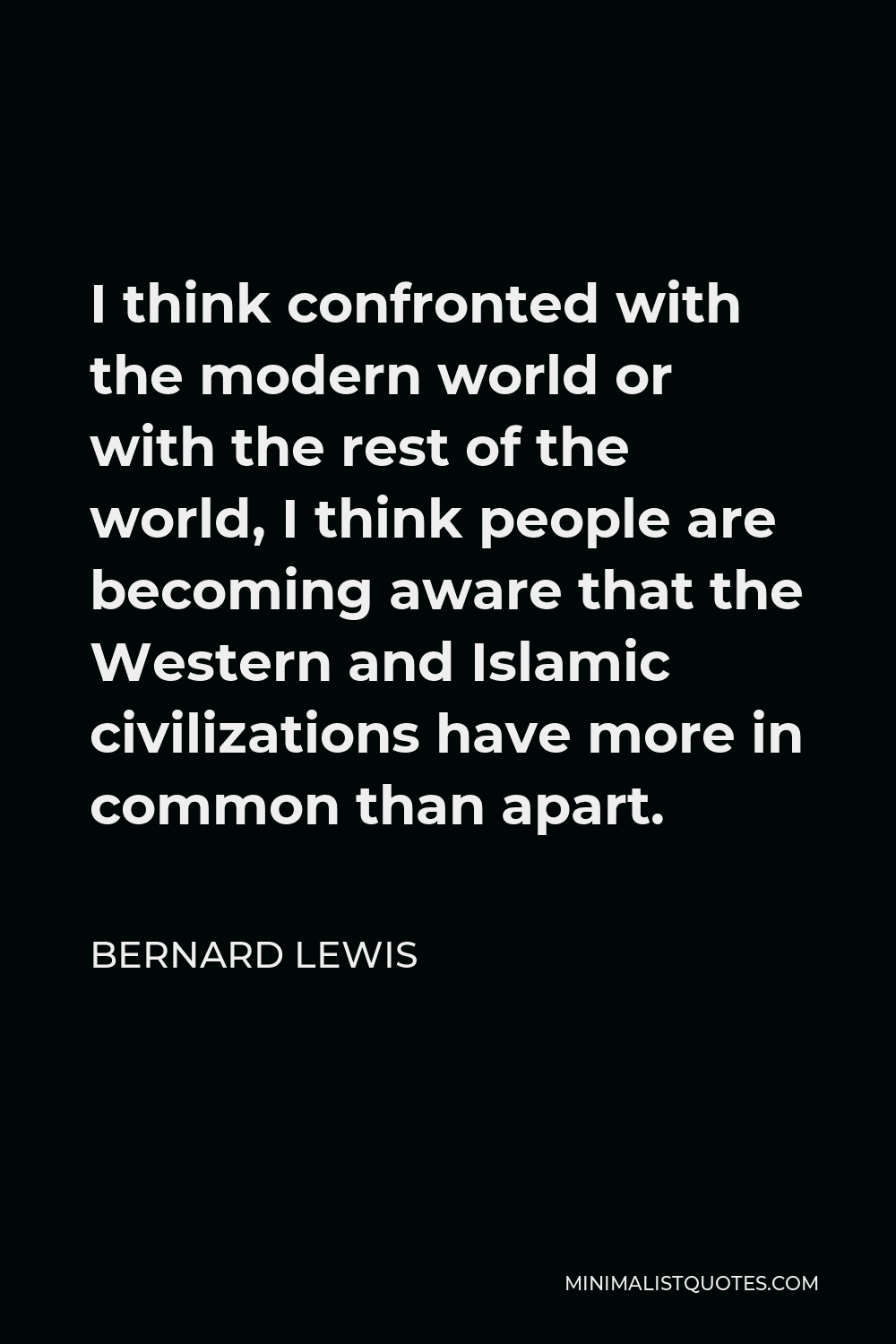
I think confronted with the modern world or with the rest of the world, I think people are becoming aware that the Western and Islamic civilizations have more in common than apart.
BERNARD LEWIS -





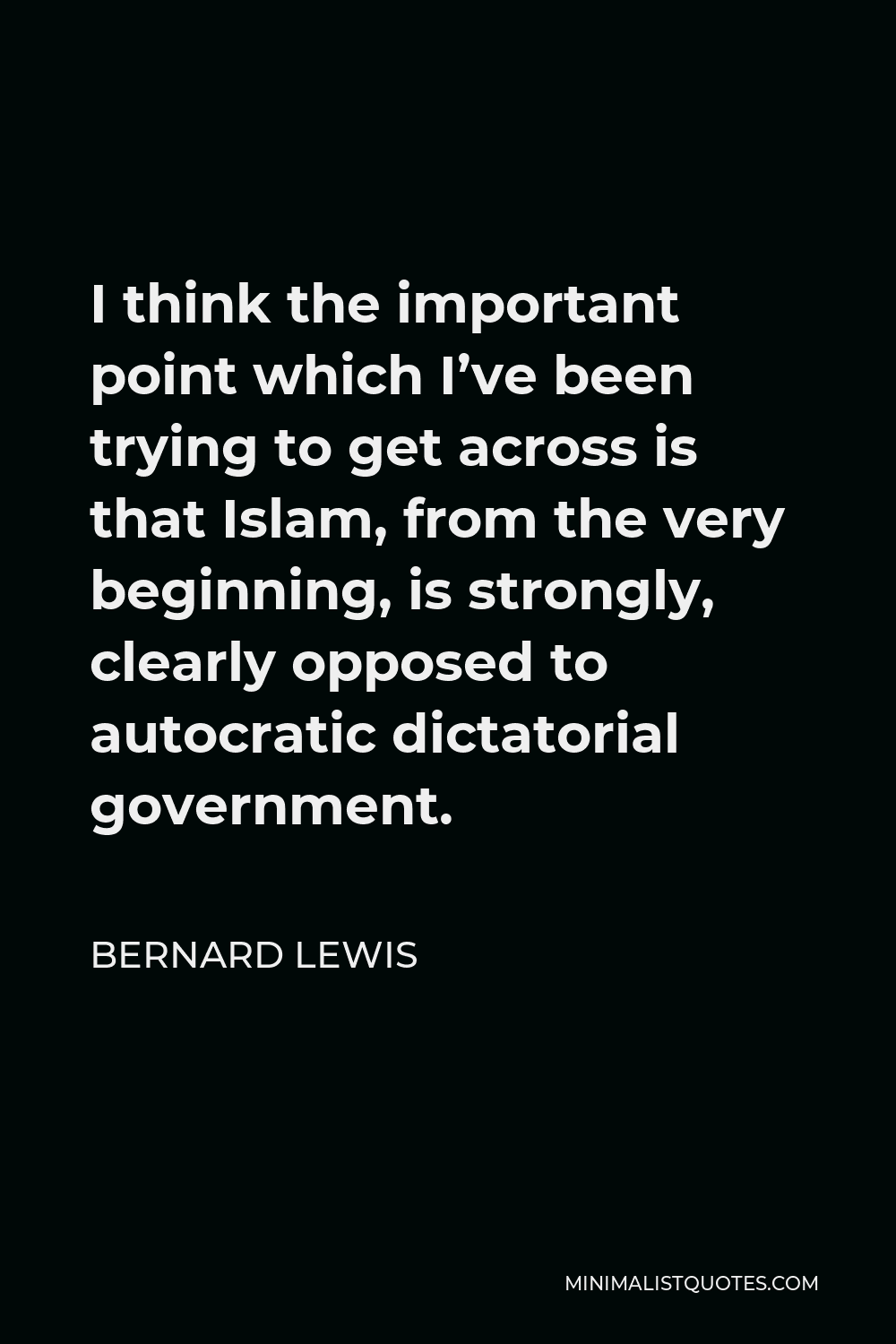
I think the important point which I’ve been trying to get across is that Islam, from the very beginning, is strongly, clearly opposed to autocratic dictatorial government.
BERNARD LEWIS -





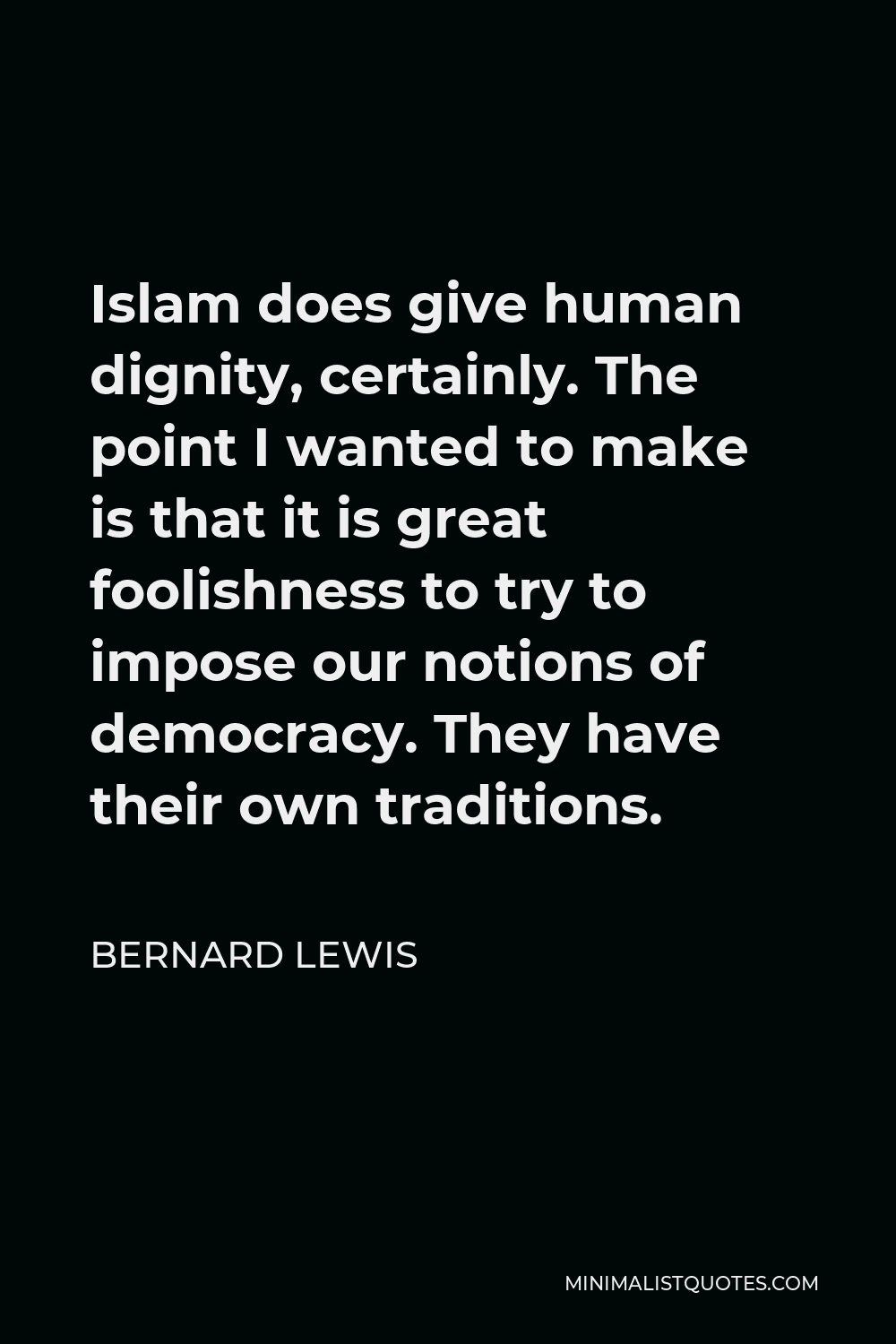
Islam does give human dignity, certainly. The point I wanted to make is that it is great foolishness to try to impose our notions of democracy. They have their own traditions.
BERNARD LEWIS -





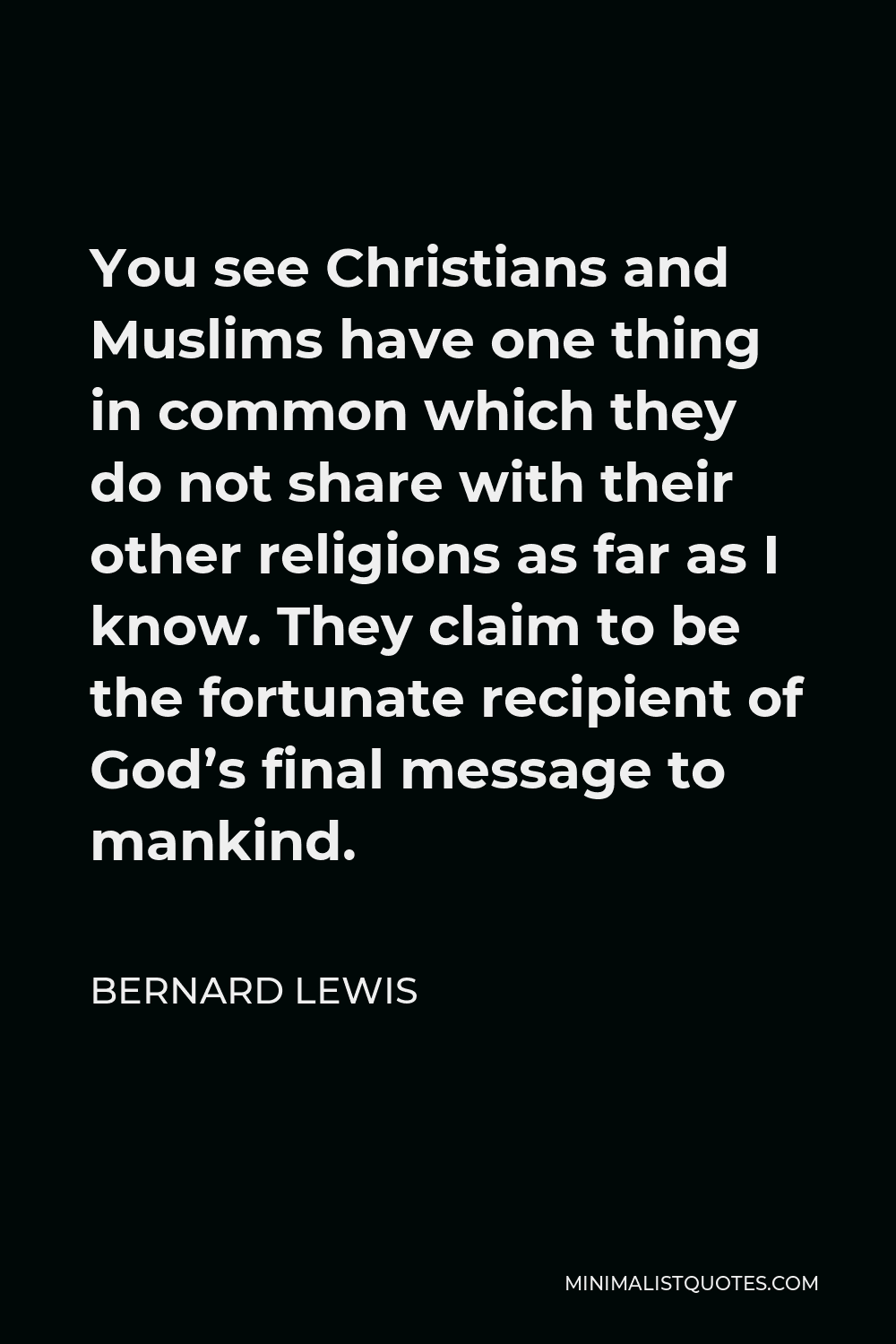
You see Christians and Muslims have one thing in common which they do not share with their other religions as far as I know. They claim to be the fortunate recipient of God’s final message to mankind.
BERNARD LEWIS -





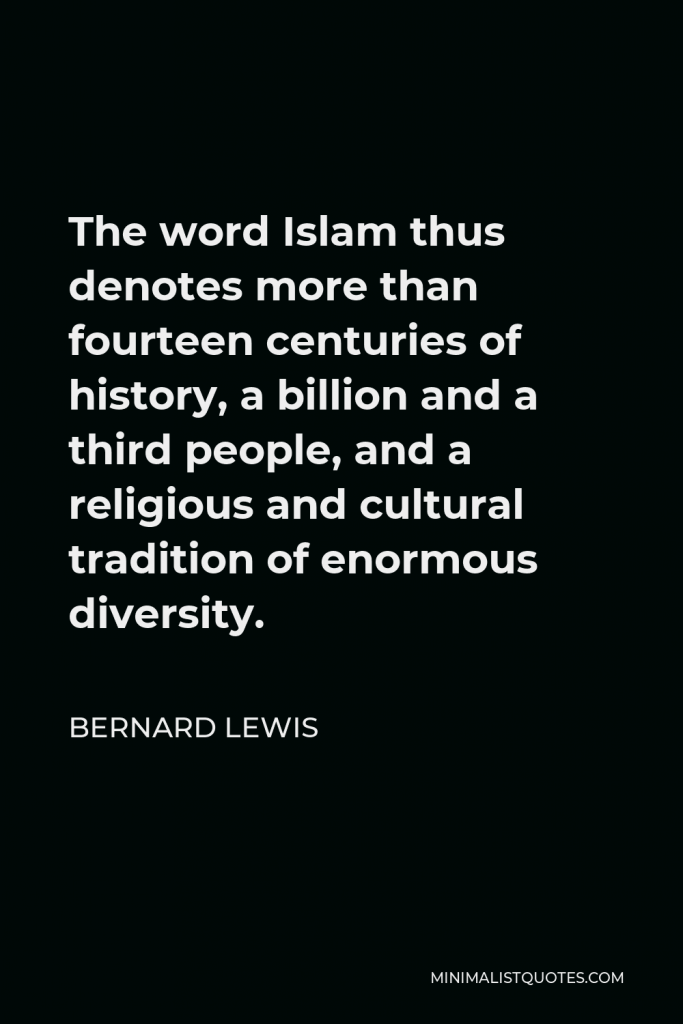

The word Islam thus denotes more than fourteen centuries of history, a billion and a third people, and a religious and cultural tradition of enormous diversity.
BERNARD LEWIS -





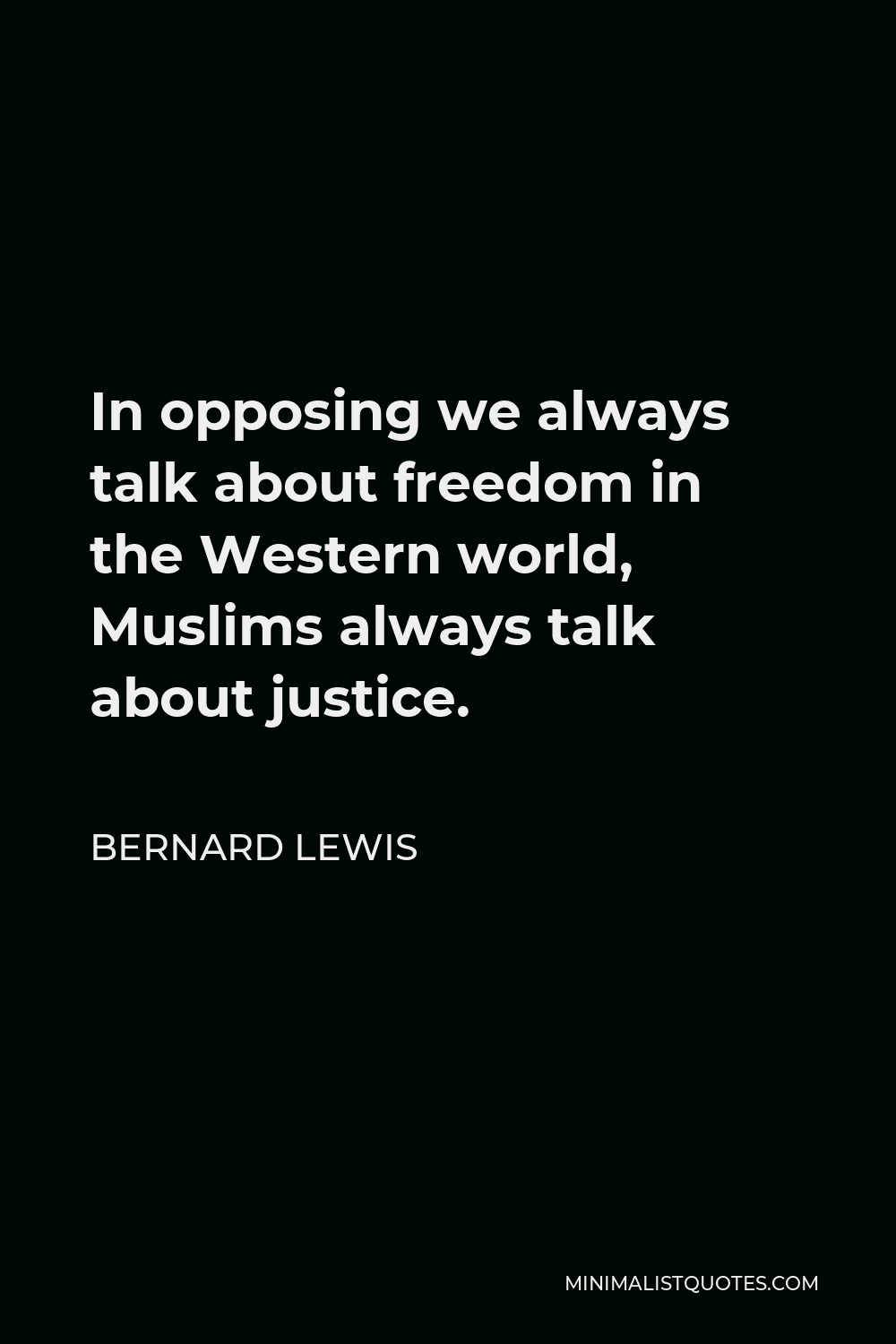
In opposing we always talk about freedom in the Western world, Muslims always talk about justice.
BERNARD LEWIS -





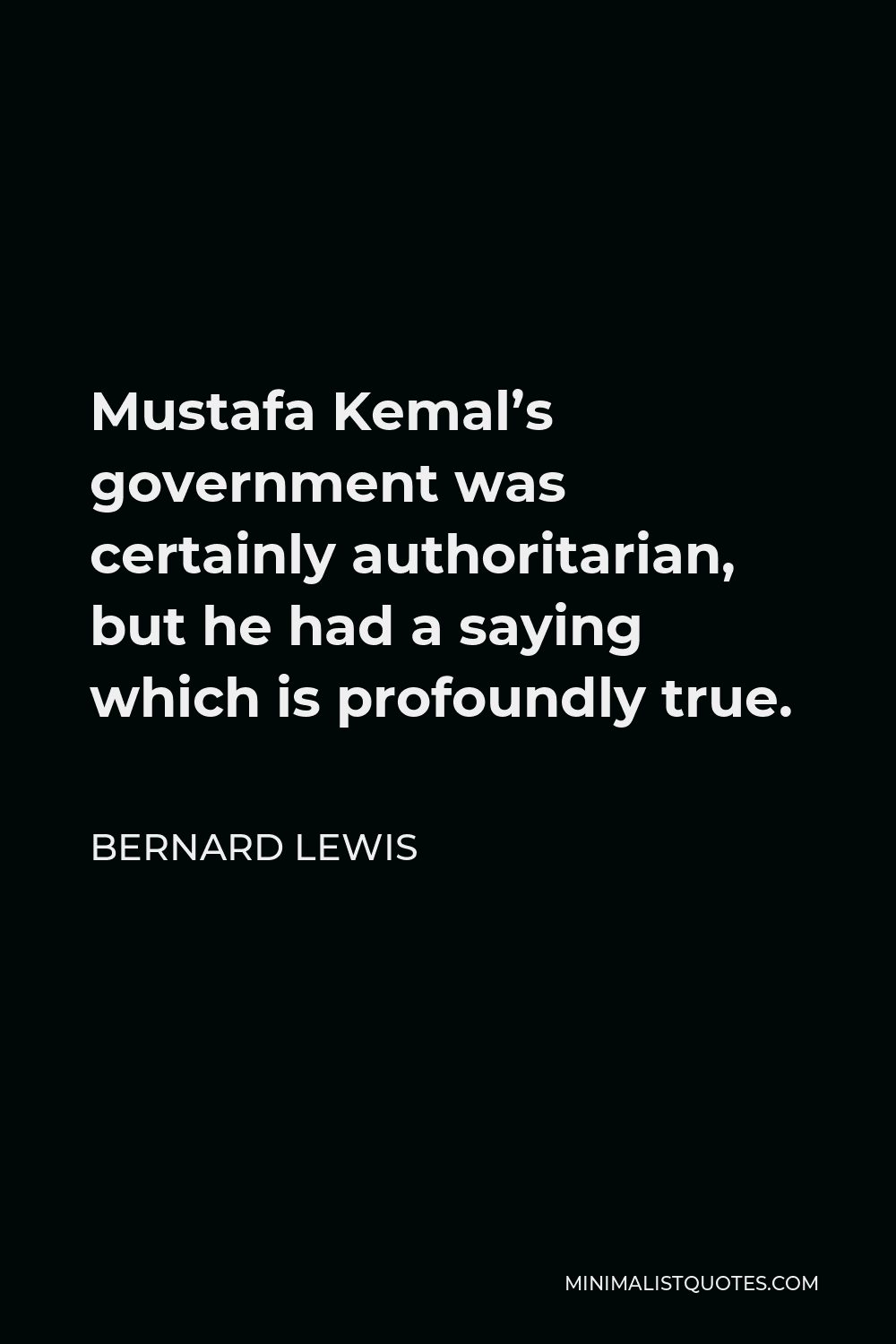
Mustafa Kemal’s government was certainly authoritarian, but he had a saying which is profoundly true.
BERNARD LEWIS -





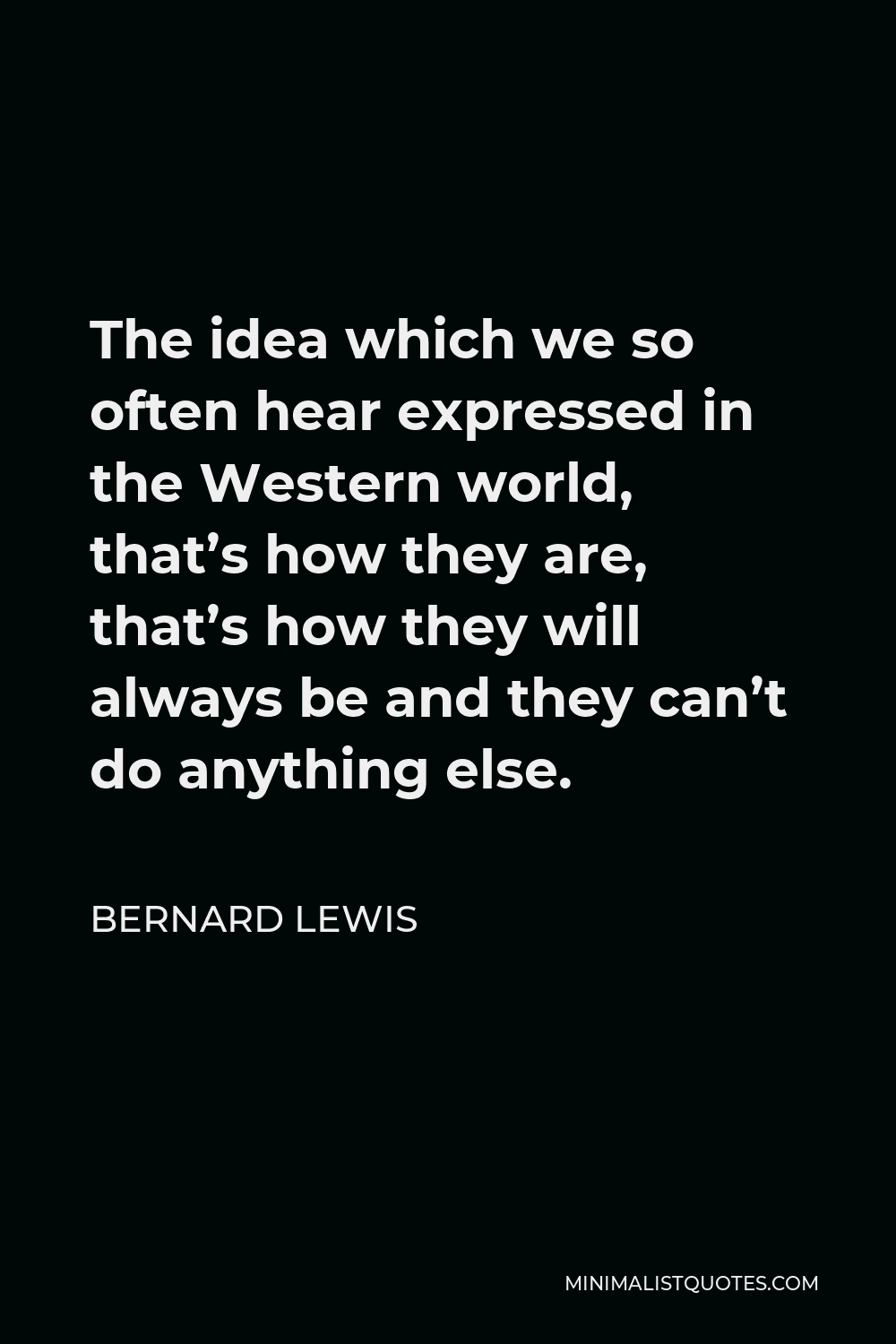
The idea which we so often hear expressed in the Western world, that’s how they are, that’s how they will always be and they can’t do anything else.
BERNARD LEWIS -





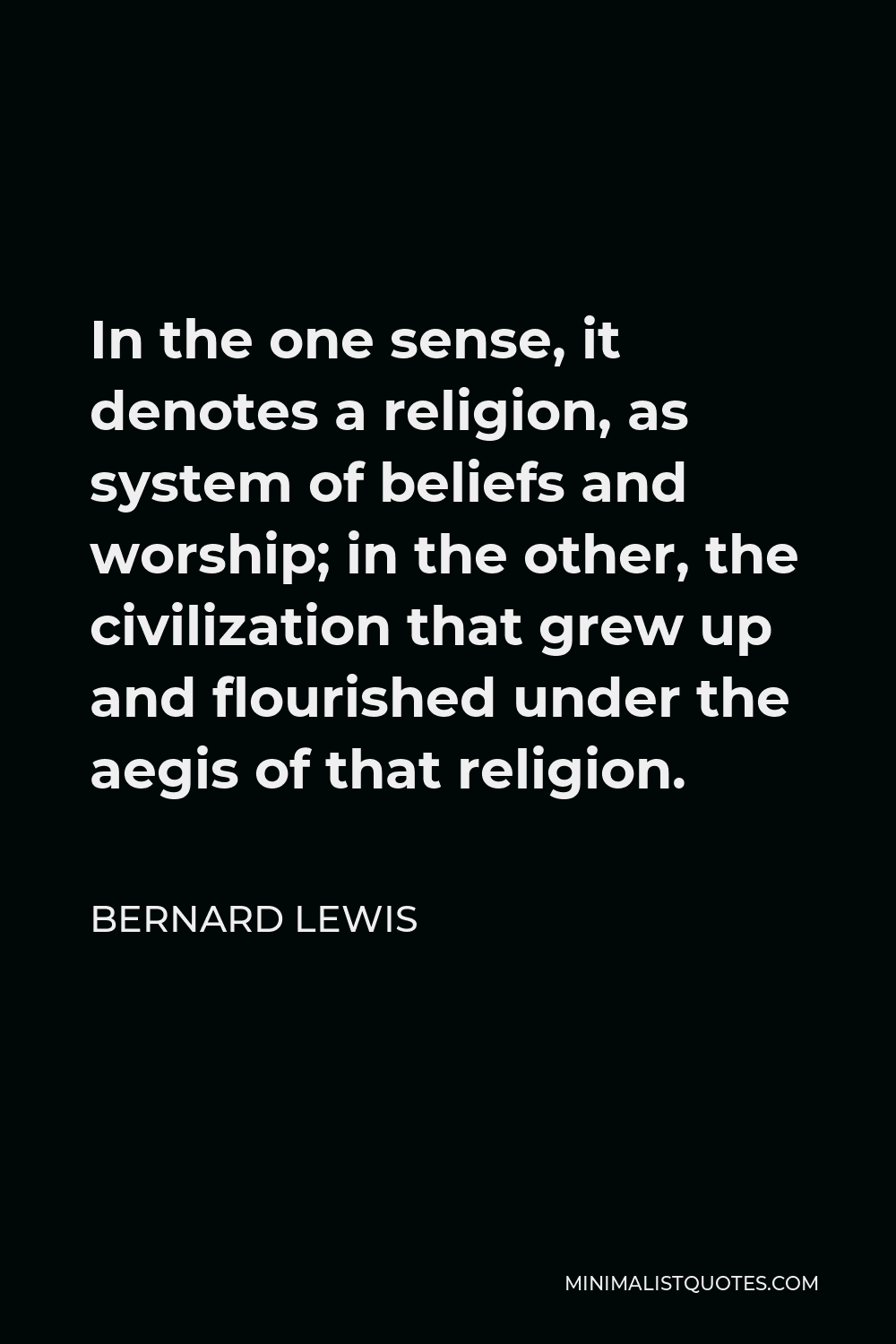
In the one sense, it denotes a religion, as system of beliefs and worship; in the other, the civilization that grew up and flourished under the aegis of that religion.
BERNARD LEWIS -





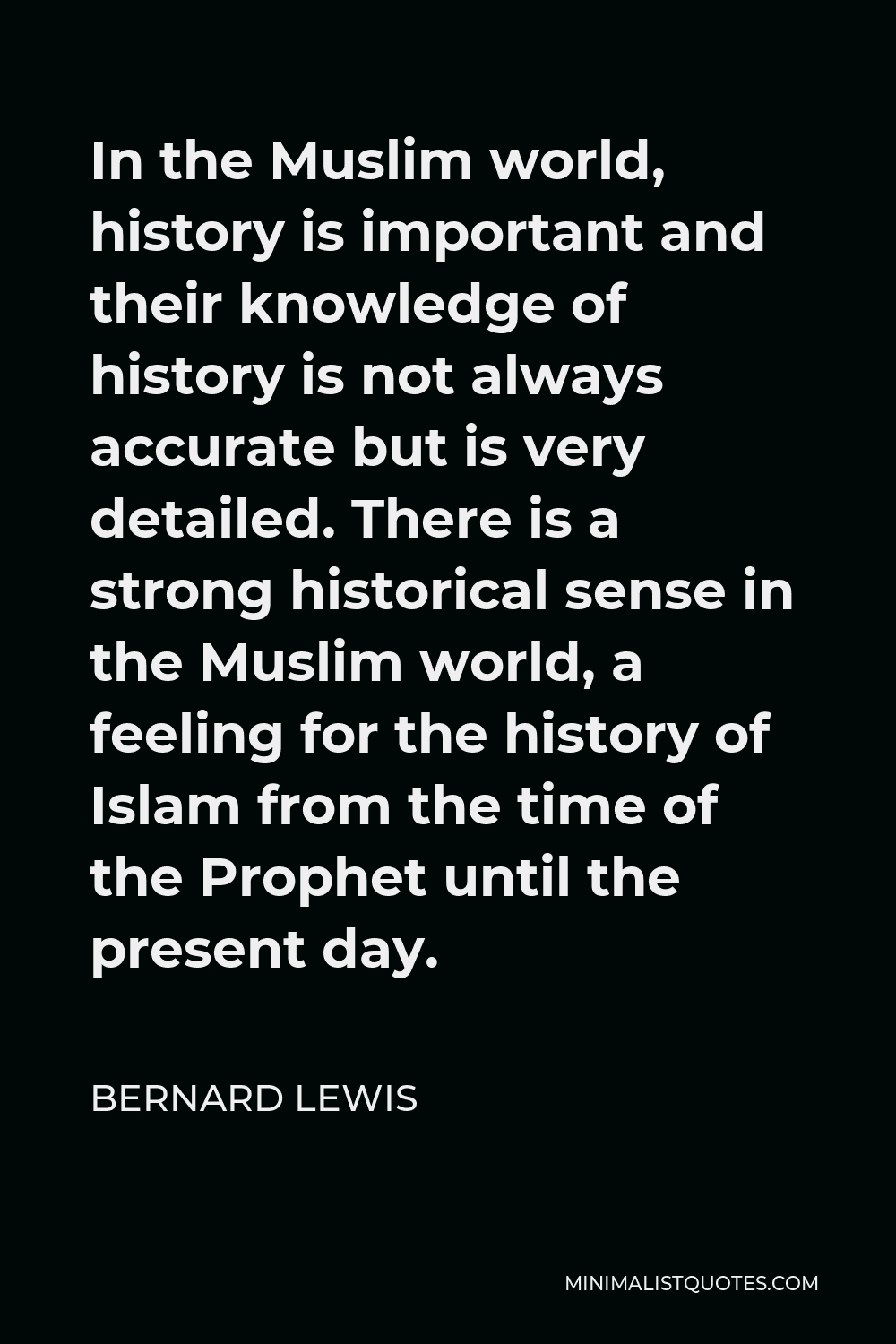
In the Muslim world, history is important and their knowledge of history is not always accurate but is very detailed. There is a strong historical sense in the Muslim world, a feeling for the history of Islam from the time of the Prophet until the present day.
BERNARD LEWIS -





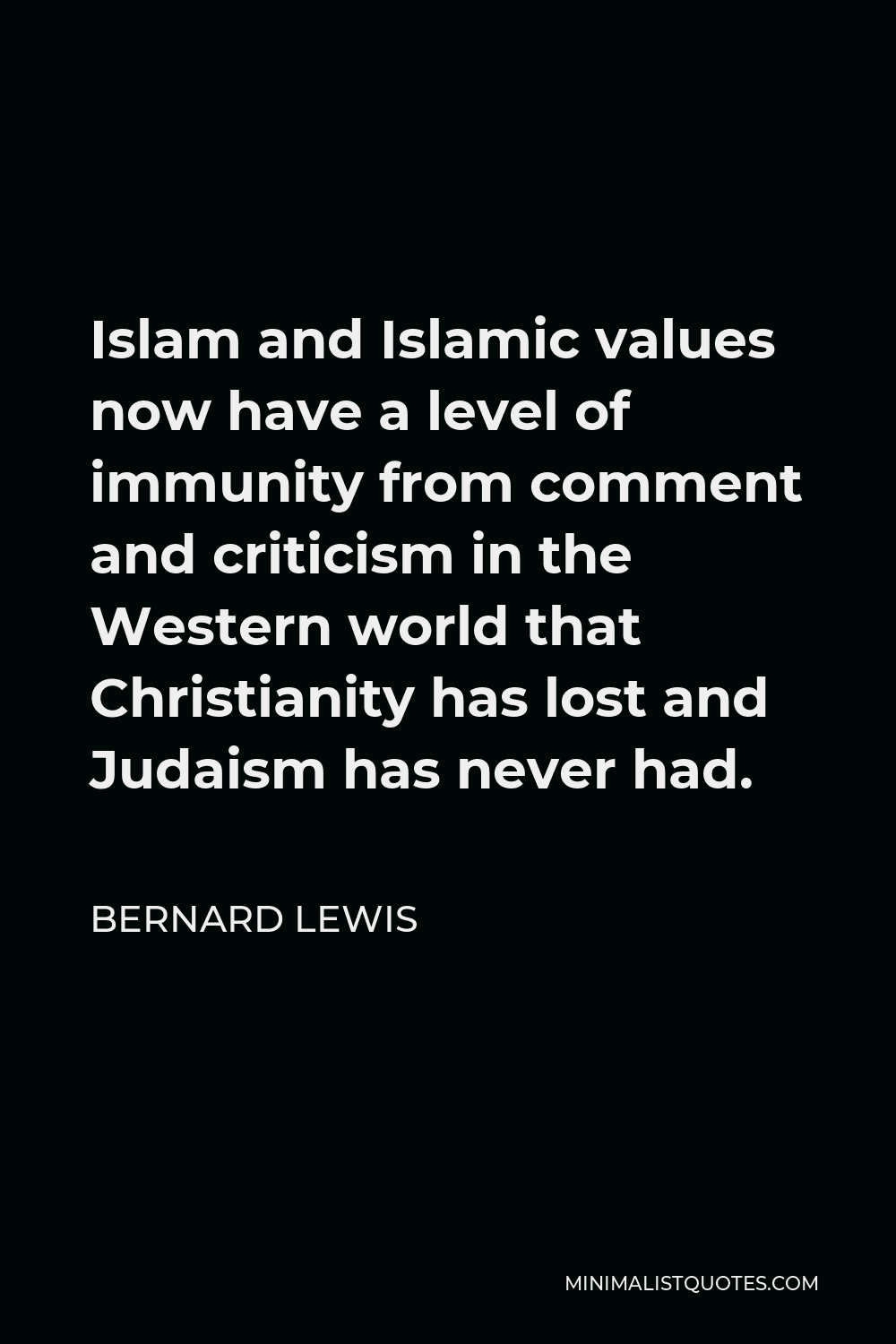
Islam and Islamic values now have a level of immunity from comment and criticism in the Western world that Christianity has lost and Judaism has never had.
BERNARD LEWIS -





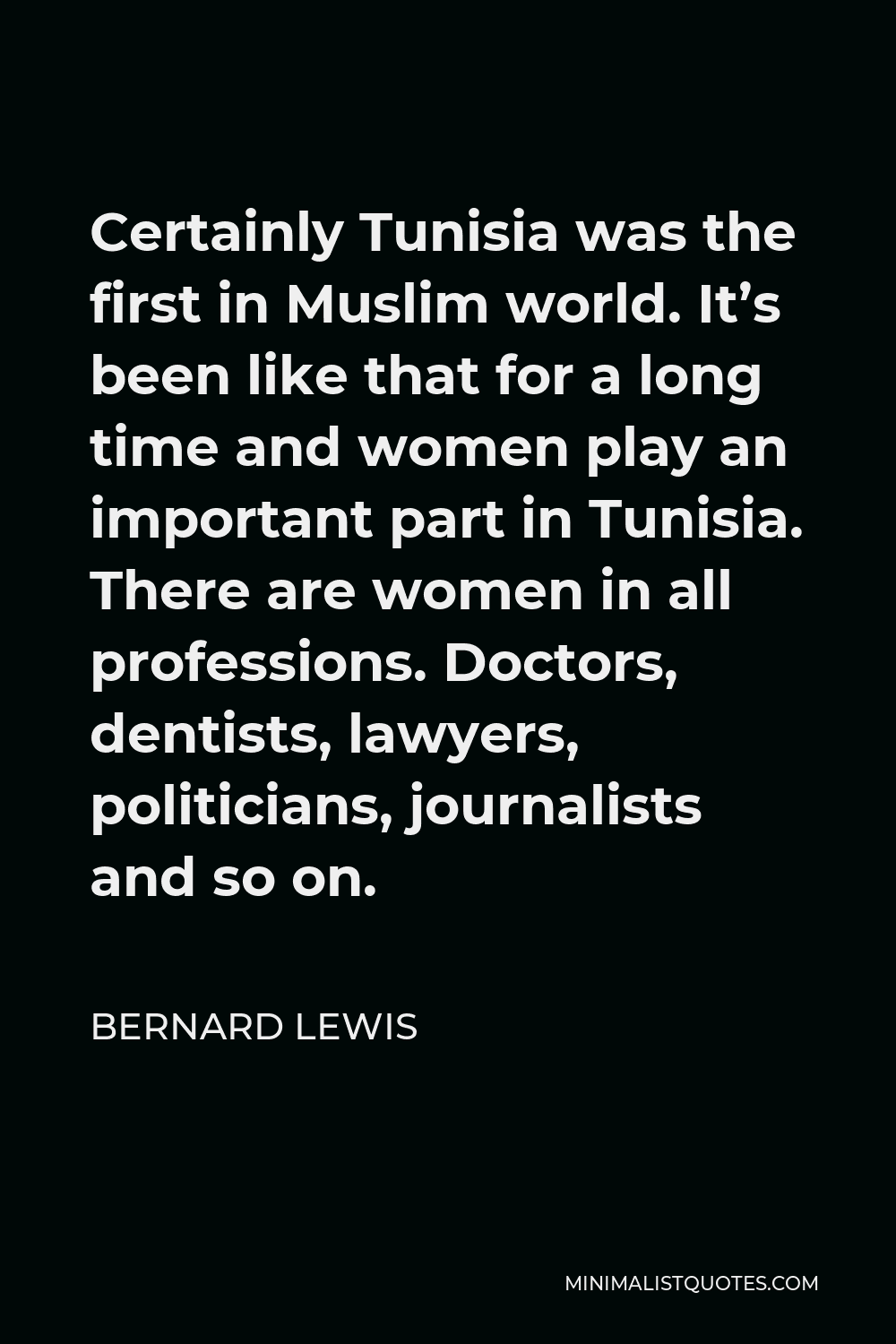
Certainly Tunisia was the first in Muslim world. It’s been like that for a long time and women play an important part in Tunisia. There are women in all professions. Doctors, dentists, lawyers, politicians, journalists and so on.
BERNARD LEWIS -





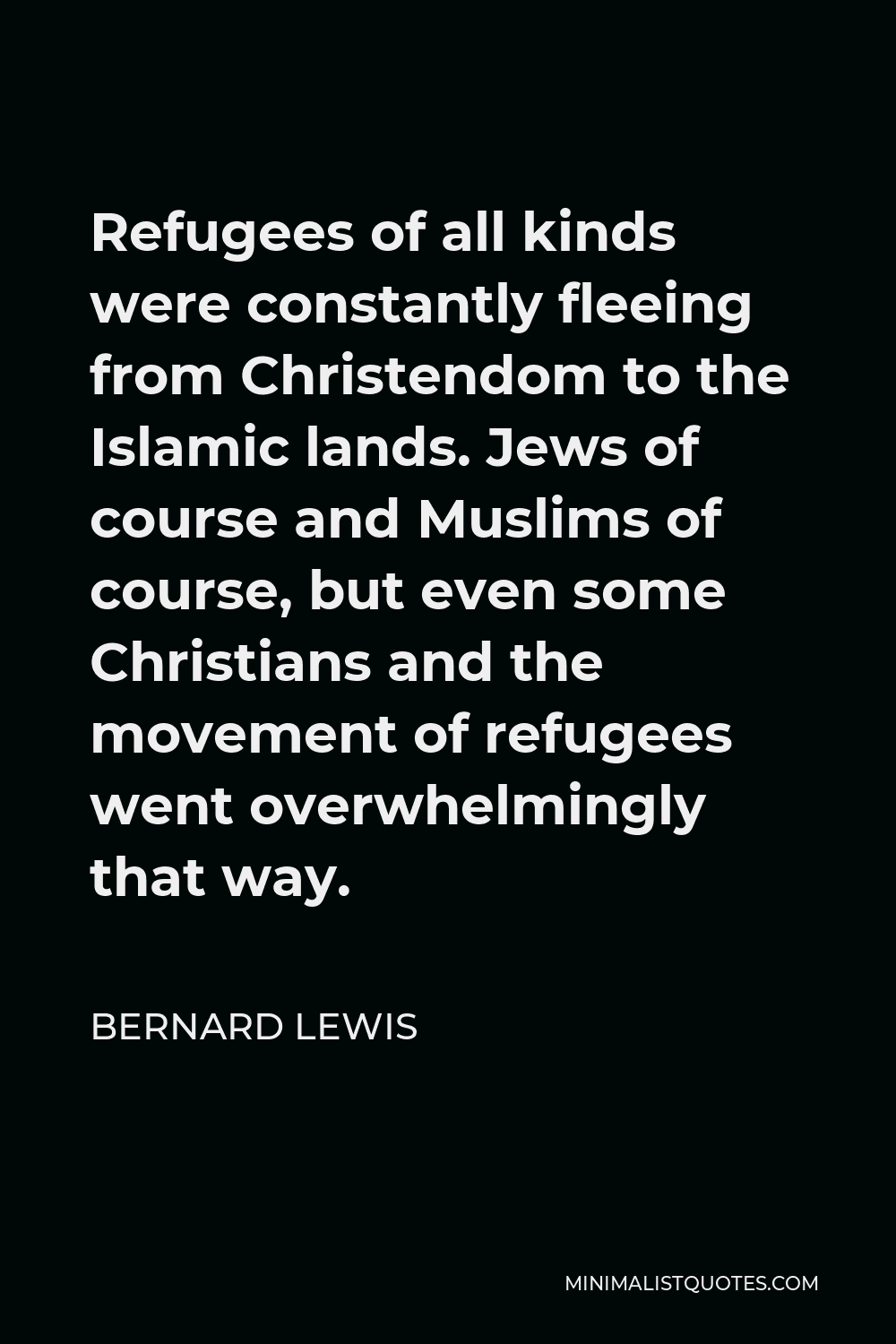
Refugees of all kinds were constantly fleeing from Christendom to the Islamic lands. Jews of course and Muslims of course, but even some Christians and the movement of refugees went overwhelmingly that way.
BERNARD LEWIS -





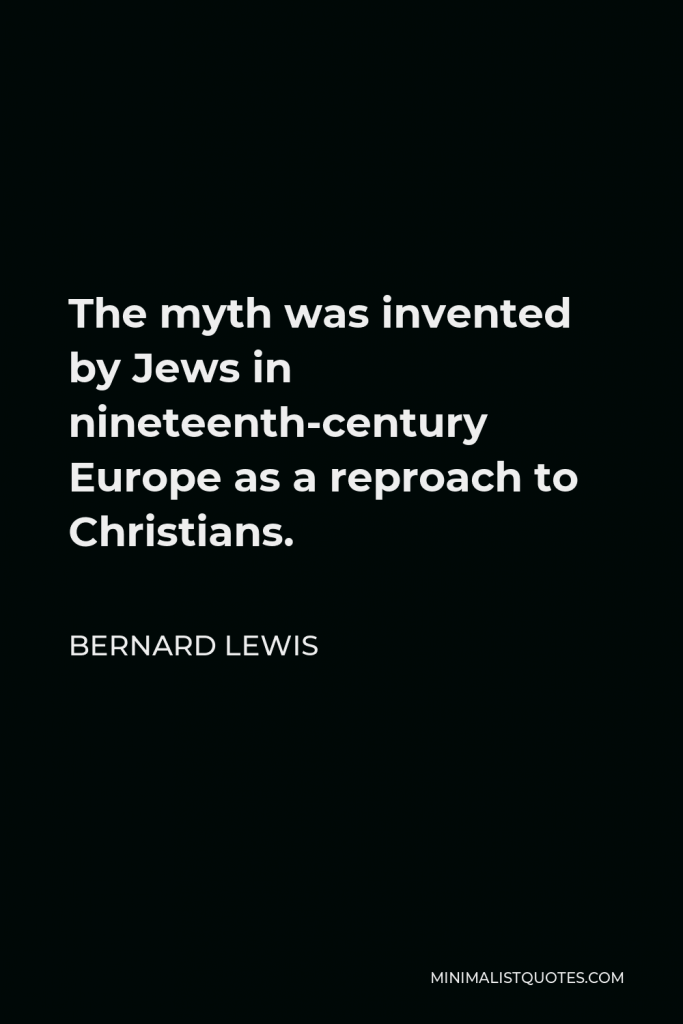

The myth was invented by Jews in nineteenth-century Europe as a reproach to Christians.
BERNARD LEWIS -





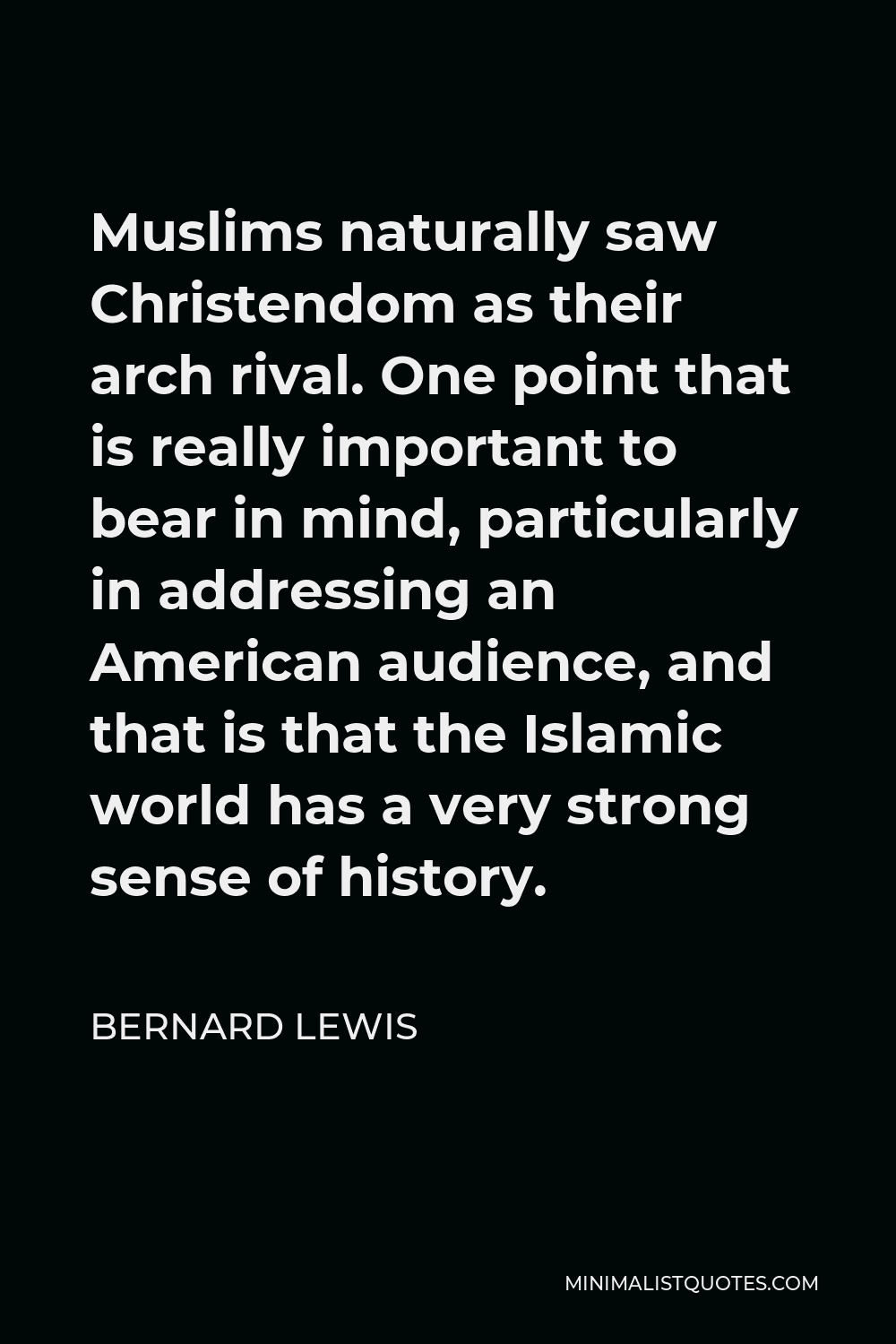
Muslims naturally saw Christendom as their arch rival. One point that is really important to bear in mind, particularly in addressing an American audience, and that is that the Islamic world has a very strong sense of history.
BERNARD LEWIS
